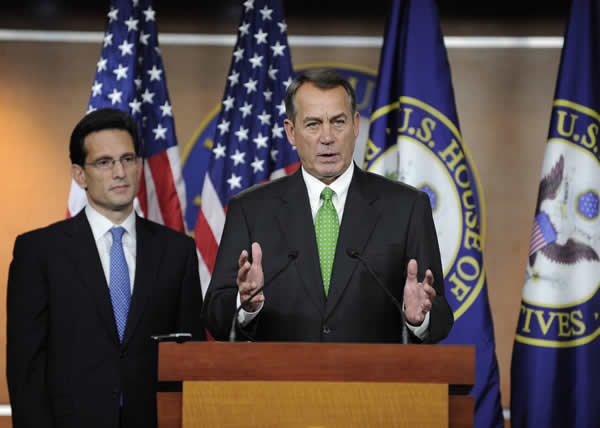This is no time to be raising taxes on anyone. This is sufficiently obvious that even President Obama and House Republicans agree on it. And so now all sides support a simple extension of the payroll tax holiday through 2012. Hallelujah. It’s about time.
The payroll tax holiday began in 2011, when the Social Security payroll tax on employees was reduced from 6.2 percent to 4.2 percent. This cut taxes by a $1,000 for a family with $50,000 in wage income. For a working family, that’s real money.
However, the payroll tax holiday was intended to be “temporary,” with little thought to what the word temporary meant. Originally enacted for one year, as 2011 drew to a close, a peculiar legislative battle developed among the President, the Senate, and the House of Representatives. The battle had little to do with the extension itself but rather the terms of the extension—specifically, whether the budget effects would be offset and, if so, how. And in classic Washington fashion, with fingers pointing all around, the debate devolved into chaos.
At the last minute Congress finally rose above the chaos to pass a two-month extension, a solution satisfying no one, but at least it avoided a very large tax hike on a very weak economy. And thus as the new year dawned, the deliberations began anew—only to reach largely the same impasses again and again. And now as February is about to give way to March, the payroll tax holiday extension is once again ready to expire.
Some still argue that extending the payroll tax holiday should be “paid for.” Their concern for our dismal fiscal state is appreciated, but here the concern is misplaced. Allowing the payroll tax holiday to expire would raise taxes. Extending the holiday avoids a tax hike. As many have argued in relation to the Bush tax cuts, policymakers should not raise taxes to avoid a tax hike. If Congress can achieve some spending reductions while avoiding a tax hike, so much the better, but all should understand that avoiding a tax hike and cutting spending are two unrelated policies.
Some might argue that the policy was intended to be temporary, and thus extending it is a tax cut, which in the present dire budgetary circumstances should be offset. Debating the intent and meaning of the word temporary is a game for lawyers and budget geeks. To the families who would pay more in tax, allowing the payroll tax holiday to expire would be most assuredly a tax hike, and taxpayers are ultimately the arbiters of whether there’s a tax hike, not the Congressional Budget Office, the President, or any Member of Congress. It is still true that you can’t fool all the people all the time.
Curiously, the President has said that the extension should run only through 2013. So he is willing to avoid a massive tax hike on working families in an election year but not thereafter. One can be forgiven for expressing more than a dollop of cynicism, especially given that even Obama’s excessively optimistic forecast has unemployment remaining at very high levels in 2013. And, of course, this is only one of the many 2013 tax hikes that Obama calls for in his budget. Raising taxes in 2013 will be almost as unwise as raising them in 2011 or 2012. But that’s a battle yet to come. Stay tuned.
































